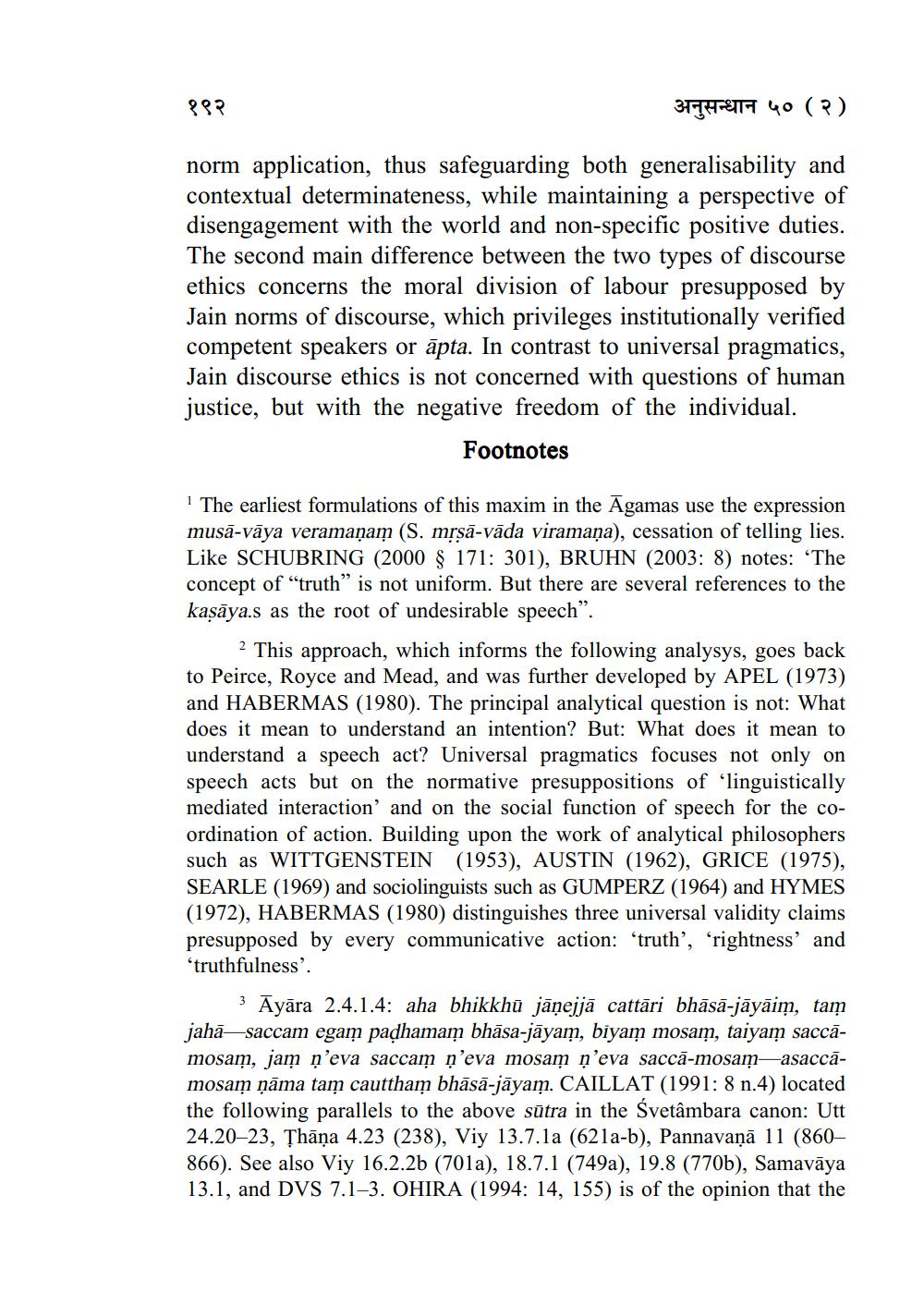________________
अनुसन्धान ५० (२)
norm application, thus safeguarding both generalisability and contextual determinateness, while maintaining a perspective of disengagement with the world and non-specific positive duties. The second main difference between the two types of discourse ethics concerns the moral division of labour presupposed by Jain norms of discourse, which privileges institutionally verified competent speakers or apta. In contrast to universal pragmatics, Jain discourse ethics is not concerned with questions of human justice, but with the negative freedom of the individual.
Footnotes
1 The earliest formulations of this maxim in the Agamas use the expression musā-vāya veramaṇam (S. mṛṣā-vāda viramaņa), cessation of telling lies. Like SCHUBRING (2000 § 171: 301), BRUHN (2003: 8) notes: 'The concept of "truth" is not uniform. But there are several references to the kaṣāya.s as the root of undesirable speech".
१९२
2 This approach, which informs the following analysys, goes back to Peirce, Royce and Mead, and was further developed by APEL (1973) and HABERMAS (1980). The principal analytical question is not: What does it mean to understand an intention? But: What does it mean to understand a speech act? Universal pragmatics focuses not only on speech acts but on the normative presuppositions of linguistically mediated interaction' and on the social function of speech for the coordination of action. Building upon the work of analytical philosophers such as WITTGENSTEIN (1953), AUSTIN (1962), GRICE (1975), SEARLE (1969) and sociolinguists such as GUMPERZ (1964) and HYMES (1972), HABERMAS (1980) distinguishes three universal validity claims presupposed by every communicative action: 'truth', 'rightness' and 'truthfulness'.
3 Ayara 2.4.1.4: aha bhikkhū jāņejjā cattāri bhāsā-jāyāim, tam jahā saccam egam padhamam bhāsa-jāyam, biyam mosam, taiyam saccāmosam, jam n'eva saccam n'eva mosam n'eva sacca-mosam-asaccāmosam ṇāma tam cauttham bhāsā-jāyam. CAILLAT (1991: 8 n.4) located the following parallels to the above sutra in the Śvetâmbara canon: Utt 24.20-23, Thāņa 4.23 (238), Viy 13.7.1a (621a-b), Pannavaṇā 11 (860866). See also Viy 16.2.2b (701a), 18.7.1 (749a), 19.8 (770b), Samavāya 13.1, and DVS 7.1-3. OHIRA (1994: 14, 155) is of the opinion that the




